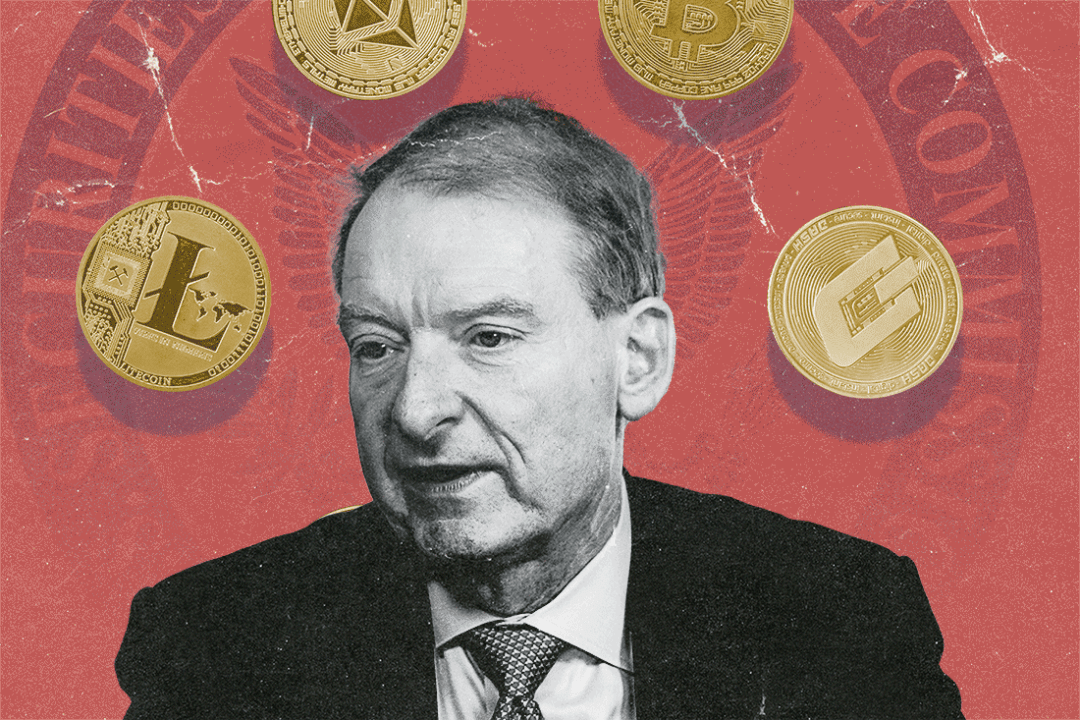introduction:
Although Bitcoin has experienced price fluctuations recently, its position as a core asset of the US dollar remains solid. With the implementation of a series of crypto-friendly policies by the Trump administration, the US crypto industry has ushered in unprecedented development opportunities.
From personnel adjustments in key regulatory agencies to the advancement of congressional legislation, the United States is accelerating the construction of the world's most competitive crypto-financial ecosystem.
1. Trump appoints crypto-friendly officials, bringing new opportunities for industry development
After the Trump administration came to power, it quickly appointed a group of pro-cryptocurrency officials in key financial regulatory agencies, laying the policy foundation for the development of the industry.
1. Treasury Secretary Scott Bessent: “Escort” of the Crypto Market

As a hedge fund manager and staunch supporter of cryptocurrencies, after taking office, Bessant pushed the Ministry of Finance to relax regulation of crypto assets and to gain more room for the industry in tax policies.
His policy advocacy has provided important support for the development of Bitcoin and decentralized finance (DeFi).
2. SEC Chairman Paul Atkins: Defender of the Free Market

Atkins, a former SEC commissioner, advocated reducing regulatory intervention and promoting free market development. His appointment indicates that the SEC may reduce its enforcement actions against the crypto industry and provide more space for market innovation.
3. CFTC Chairman Brian Quintenz: Promoter of Crypto Derivatives

As a former CFTC commissioner, Quintence supports loose regulation of crypto derivatives and DeFi. His leadership has enabled the CFTC to shift from restrictive regulation to encouraging innovation, injecting new impetus into the development of the industry.
The appointment of these key officials not only boosts market confidence, but also creates a more open and friendly regulatory environment for the U.S. crypto industry.
2. The White House Digital Asset Task Force: The Beginning of Systematic Policy Advancement

In order to systematically promote the regulation of the crypto industry, the Trump administration established the Presidential Working Group on Digital Asset Markets, led by David Sacks, the White House Special Advisor on AI and Crypto. The establishment of this working group marks the transition of US crypto policy from fragmentation to systematization.
1. Develop a national cryptocurrency regulatory framework
The working group is committed to unifying market structure, consumer protection and risk management rules, and providing clear regulatory guidance for the crypto industry.
2. Assessing the feasibility of Bitcoin as a national reserve
The working group submitted relevant policy recommendations within 180 days to explore the possibility of incorporating Bitcoin into the national strategic reserves.
3. Prevent the development of CBDC and maintain the private digital currency market
The working group explicitly prohibits the Federal Reserve from developing a central bank digital currency (CBDC) to ensure the independence and competitiveness of the private digital currency market.
This series of measures has significantly enhanced the United States' influence in the global cryptocurrency field and made policy advancement more efficient and systematic.
3. U.S. Senate Banking Committee: Establishment of Digital Asset Committee

On January 23, 2025, the Senate Banking Committee established a Digital Assets Committee, chaired by Senator Cynthia Lummis, to promote industry compliance: through bipartisan legislation, promote stablecoin regulation, market structure optimization, and promote Bitcoin to become a national strategic reserve asset.
Oversee financial regulators to prevent discriminatory crackdowns on cryptocurrencies, such as “Operation Chokepoint 2.0.”
The Strategic Bitcoin Reserve Act proposed by Lummis suggests selling part of the Federal Reserve's gold reserves, purchasing 1 million bitcoins, and building a national bitcoin reserve, reflecting the Trump administration's emphasis on bitcoin.

Here is a list of crypto-related officials Trump has appointed since taking office:

4. Congressional legislation accelerates: the crypto industry moves towards legalization and institutionalization
Driven by the Trump administration, the U.S. Congress has accelerated the process of encryption-related legislation, providing a more stable policy environment for the industry.
1. FIT21 Act: a “watershed moment” for the crypto market
On May 22, 2024, the FIT21 Act was passed by the House of Representatives and was regarded as a historic breakthrough for the U.S. crypto industry. The bill clarifies the regulatory powers of the SEC and CFTC, addresses the classification of cryptocurrency securities and commodities, and provides clear rules for token issuance and trading. In addition, the bill also promotes regulatory research on DeFi and promotes its integration with the mainstream market.
2. Stablecoin Regulatory Bill: A “Booster” for Market Confidence
On February 5, 2025, the stablecoin regulation bill proposed by Senator Bill Hagerty received bipartisan support. The bill incorporates stablecoins such as USDT and USDC into the Federal Reserve's regulatory framework, provides guarantees for the legitimacy and security of stablecoins, and attracts more traditional financial institutions to enter the market.
3. Revocation of SAB121: “Loosening” of Cryptocurrency Accounting Policy
On January 24, 2025, the SEC officially revoked the SAB121 crypto accounting policy. This adjustment makes the financial treatment of crypto asset custody business more flexible, reduces the compliance costs of banks and financial institutions, and clears the way for institutional investors to enter the market.
5. The crypto industry is moving towards the mainstream, and the golden period of development is coming

After the Trump administration came to power, the policy environment of the U.S. crypto industry has undergone fundamental changes. From the appointment of key officials to the establishment of the White House Digital Asset Task Force, to the accelerated advancement of congressional legislation, the United States is gradually building the world's most competitive crypto financial ecosystem.
The SEC's regulatory relaxation, the advancement of stablecoin legislation, and the passage of the FIT21 Act indicate that the crypto industry is bidding farewell to policy uncertainty and moving towards a more stable and sustainable development path. As favorable policies continue to be implemented, the business innovation environment will be further opened up, and investor confidence will be significantly enhanced. Areas such as stablecoins, DeFi, and custody may usher in a new round of growth.
The United States is accelerating its consolidation of its position as the global crypto-financial center, and the crypto industry is moving from the "Wild West" to the mainstream financial system. In the future, as more policy details are implemented, the U.S. crypto industry will usher in an unprecedented golden period of development.
Conclusion:
From regulatory relaxation to legislative advancement, the Trump administration's policy changes have injected new vitality into the U.S. crypto industry. As the industry gradually moves toward legalization and institutionalization, cryptocurrencies are no longer "marginal assets" but are gradually becoming an important part of the global financial system.
This shift not only reshapes the U.S. financial landscape, but also provides a new template for the development of the global crypto industry.
Disclaimer: The content of this article is for reference only and does not constitute any investment advice. Investors should view cryptocurrency investment rationally based on their own risk tolerance and investment goals, and should not blindly follow the trend.


